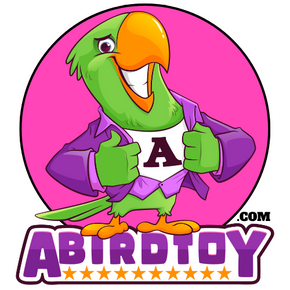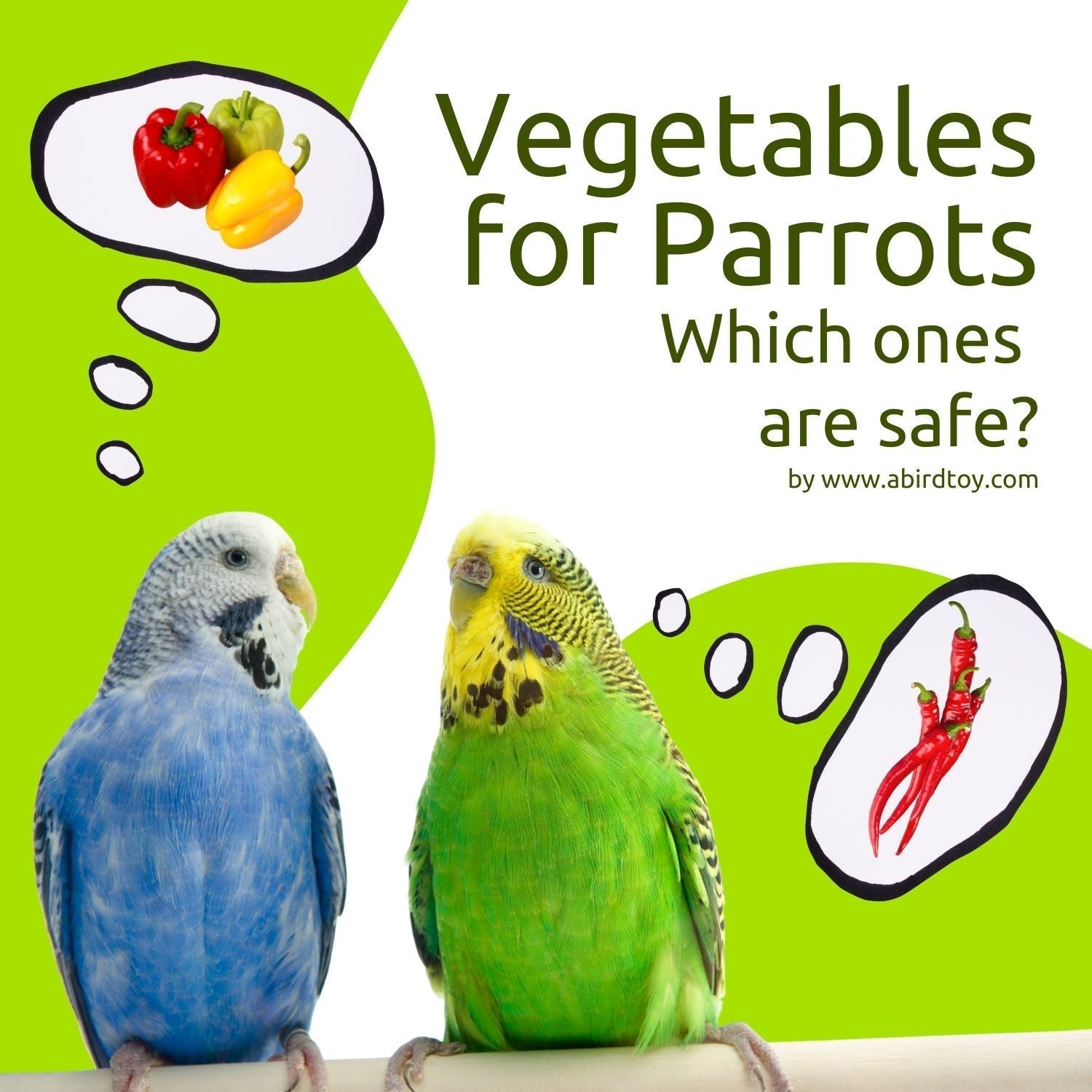Picked up some fresh vegetables for a healthy salad or stir-fry? Don’t forget about your parrot! Our feathered family members can (and should) enjoy most of the fresh produce we humans bring home for our own meals. Just check our list of safe and unsafe vegetables for parrots before sharing.
Why should your parrot eat vegetables?
Although dry seed mixes have long been considered the ultimate parrot staple food, more and more parrot owners are catching on to the fact that our birds actually need fresher and more nutritionally complete foods to thrive.
Consider: wild parrots eat a species-dependent but varied diet, consisting not just of dry seeds but also unripe and sprouted ones, as well as a range of fruits, legumes, human-grown crops, leaf sprouts, flower buds, and more. A similar level of variety is recommended to keep our pet birds happy and healthy.
Although a high-quality pellet or formulated freeze-dried parrot food mix works well as a daily staple, it’s still a good idea to include plenty of fresh produce as well. We especially recommend daily servings of vegetables, which are lower in (natural) sugars than fruits and brimming with healthy vitamins and minerals. Their bright colors and variety help keep your parrot entertained, encouraging foraging behavior and making mealtime more fun.
As we mentioned, most vegetables sold for human consumption are also safe and healthy for parrots—but not all of them.
Safe & unsafe vegetables for parrots
What vegetables are you cooking today? Compare the handy alphabetically ordered list below with the produce you’ve got in your fridge to quickly see whether you can share a few chunks with your feathered friend. There’s also a printable version: Safe Vegetables For Parrots.
Before we start, just a quick note on oxalic acid. Many vegetables contain this compound, and that’s fine, but excess oxalic acid can bind to calcium in your bird’s body. This is known to cause calcium deficiencies and kidney issues in some cases, which is why you should feed oxalic acid-rich veggies in moderation. They’re fine, but shouldn’t be used as a daily staple.
Note: we’re using the culinary definition of a vegetable here, which includes produce like tomatoes and avocado.
Legend
☣️ = oxalic acid content
🍲 = must be cooked
✂️ = remove leaves and stems
🌿 = leaves and stems are especially nutritious
| Vegetable name | Parrot‑safe? |
|---|---|
| Artichoke | Yes |
| Asparagus | Debatable, but likely yes* |
| Avocado | No! All parts are toxic |
| Bamboo shoots | Yes 🍲 |
| Bean sprouts | Yes |
| Bell pepper (all types) | Yes ✂️ |
| Beets | Yes, but may leave stains ☣️ |
| Broccoli (+ broccolini) | Yes 🌿 |
| Cabbage (all types) | Yes |
| Carrot | Yes 🌿 |
| Cauliflower (+ romanesco) | Yes |
| Celery (and celeriac) | Yes 🌿 |
| Chili pepper | Yes, birds can’t taste spiciness |
| Cucumber | Yes, don’t peel |
| Eggplant | Yes, ✂️🍲 |
| Endives (curly, escarole, radicchio) | Yes |
| Fennel | Yes 🌿 |
| Green beans (+ yardlong, flat, runner etc.) | Yes |
| Jicama | Yes |
| Leafy greens (kale, bok choy, chard, collard greens) | Yes (Swiss chard: ☣️) |
| Lettuce (all types) | Yes, the darker green the better |
| Lotus root | Yes 🍲 |
| Mushrooms | Some debate, but we’re saying no |
| Okra | Yes |
| Onion (+ Allium family, like garlic, scallion, chives, leek) | No, toxic to parrots |
| Parsnip | Yes ✂️ |
| Peas (normal, snow, sugar snap) | Yes |
| Potato | Yes 🍲 |
| Pumpkin (+ squash) | Yes |
| Radish (+ daikon) | Yes 🌿 |
| Rhubarb | Some debate, but we’re saying no |
| Spinach | Yes ☣️ |
| Soybeans (edamame) | Yes |
| Sunchoke | Yes, sparingly (can cause gassiness) |
| Sweet potato | Yes |
| Sweet corn | Yes, in moderation** |
| Taro | Yes 🍲☣️ |
| Tomato (+ tomatillo) | Yes ✂️ |
| Turnip (+ swede, kohlrabi etc.) | Yes 🌿 |
| Yam | Yes |
| Yuca (cassava, manioc) | Yes 🍲 |
| Zucchini |
Yes |
*Some parrot parents report mild digestive upset in their birds due to asparagus, while others note no trouble whatsoever. Offer in moderation just in case, or just pick a different vegetable.
**Fresh corn is fine for your bird, but it has been said that overdoing it can cause yeast infections in parrots’ crops.
Did you know? Although we recommend feeding plenty of fresh vegetables, you can also offer most of the above in dried or freeze-dried form. Freeze-dried parrot food in particular is almost as nutritious and colorful as fresh, but won’t spoil.
What other things can parrots eat?
More than you might think! Aside from its daily staple food, your parrot can have not just daily fresh vegetables, but also regular servings of fresh fruit, cooked legumes and whole grains, dried and sprouted seeds, and much more.
Aside from feeding all sorts of different foods, don’t forget to regularly switch up how you present them. Offering vegetables whole, using foraging boxes and toys, and encouraging your parrot to try new things are all fantastic ways to keep these highly intelligent birds from getting bored.
Conclusion
A varied diet is the key to a thriving parrot, and fresh vegetables are the perfect healthy birdie snack. Most veggies are parrot-safe, but if you’re not sure, just check the list above.





